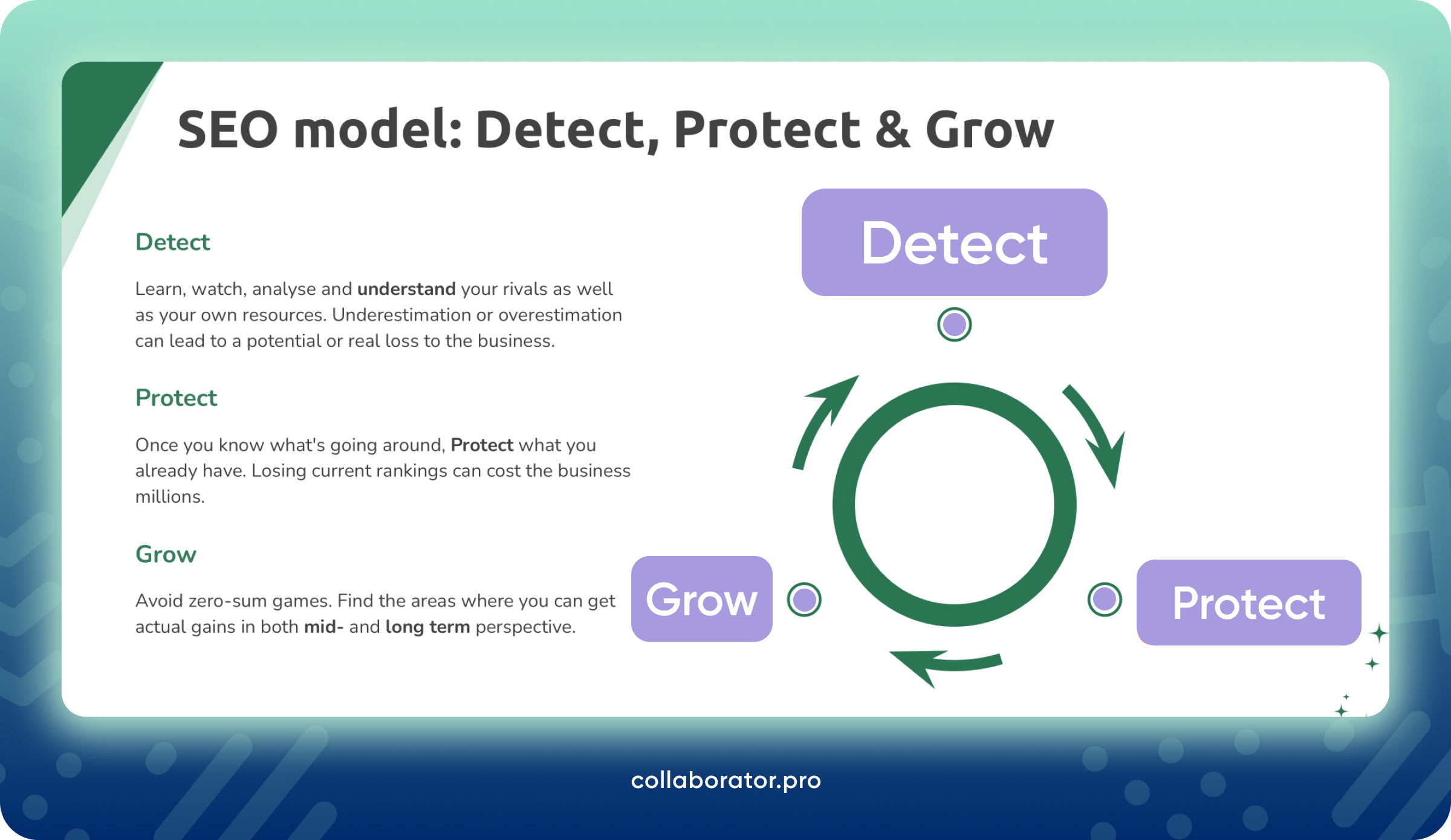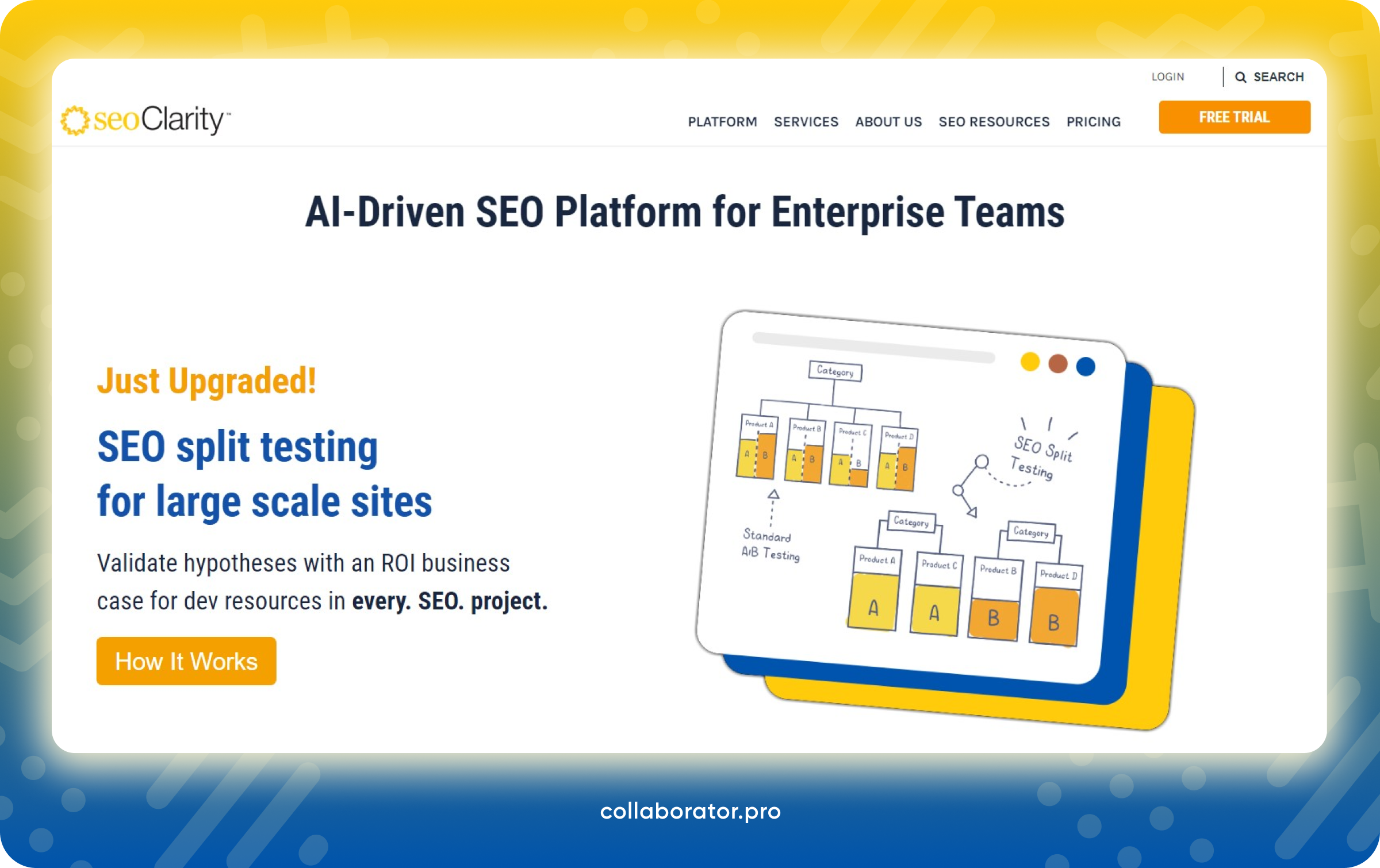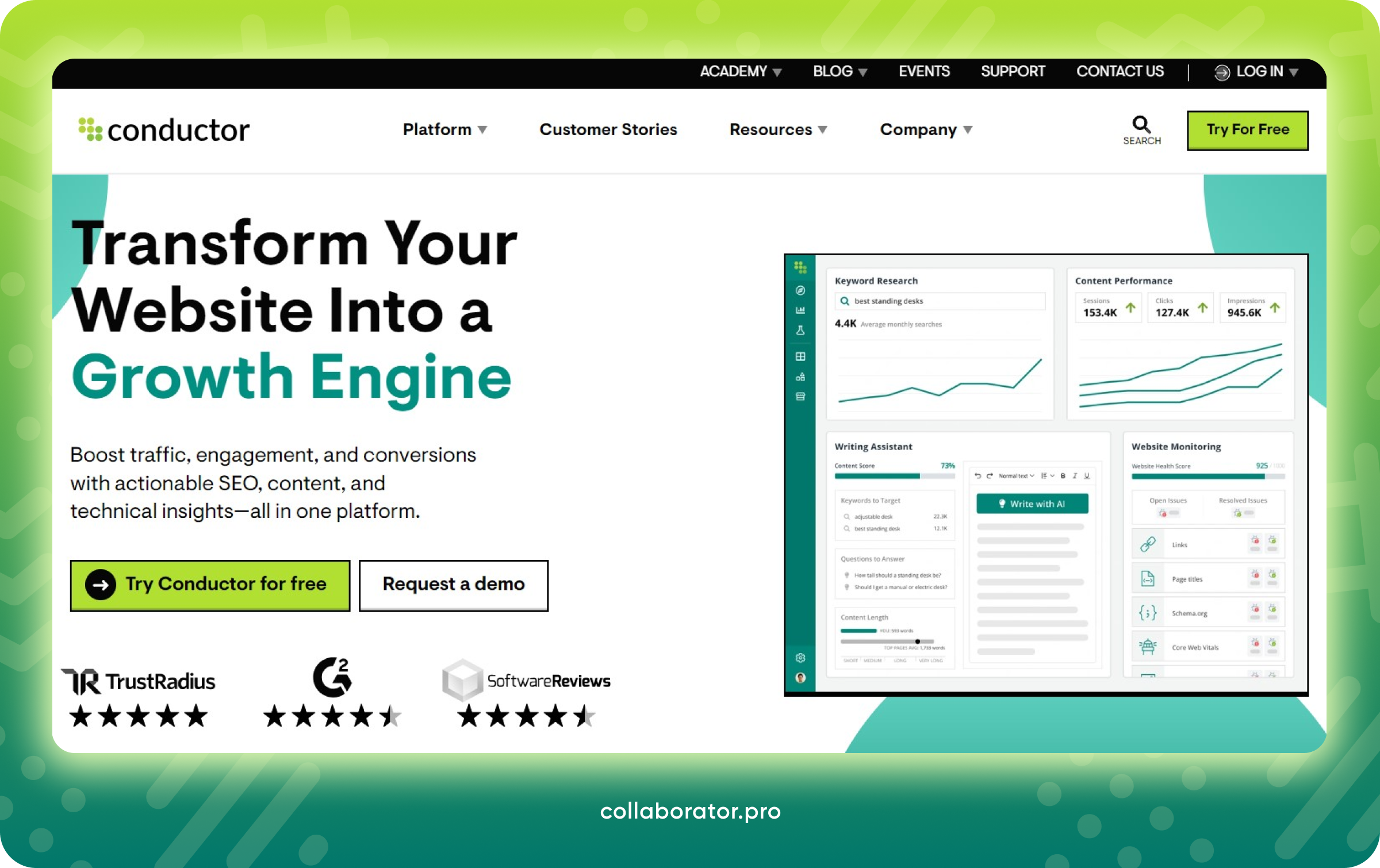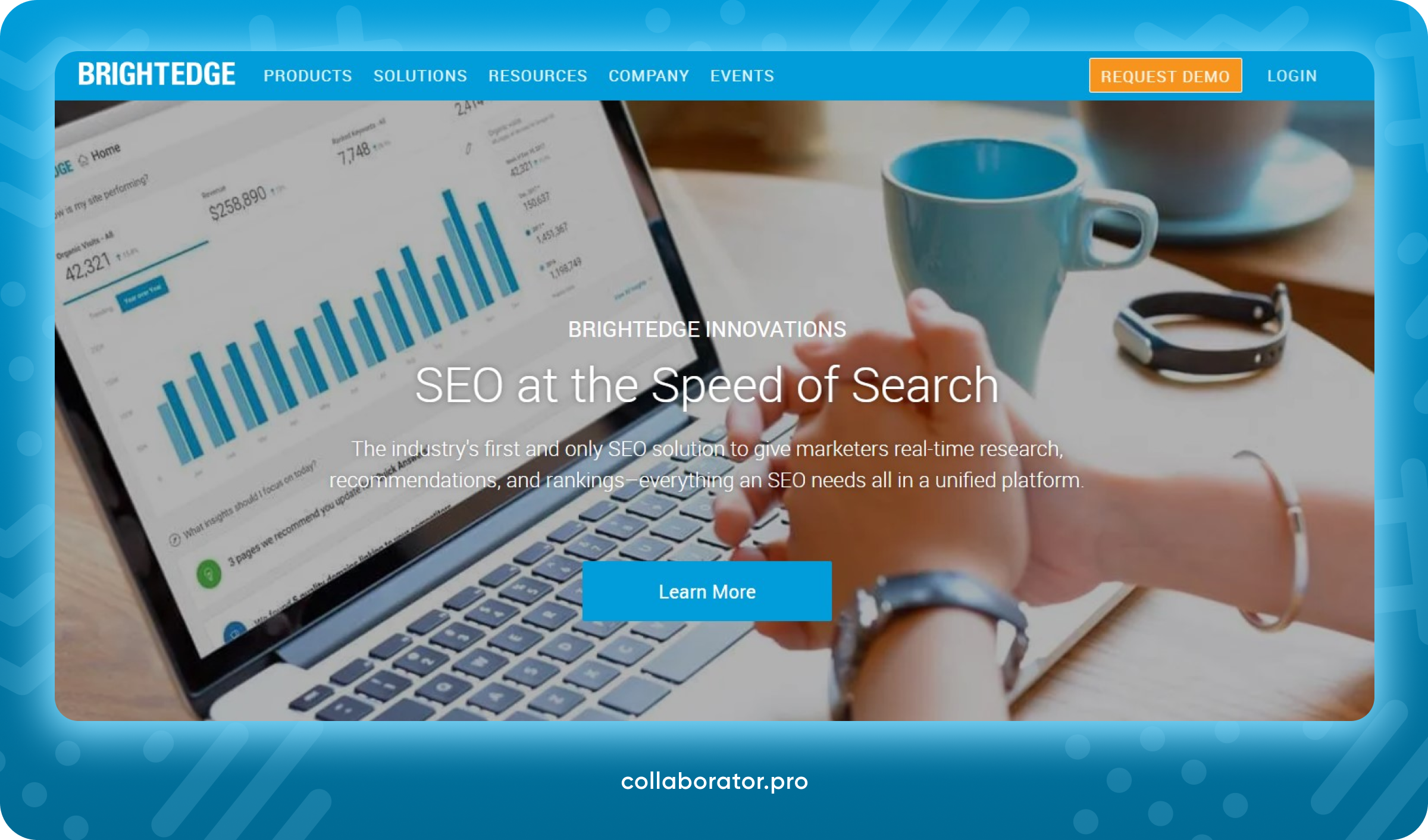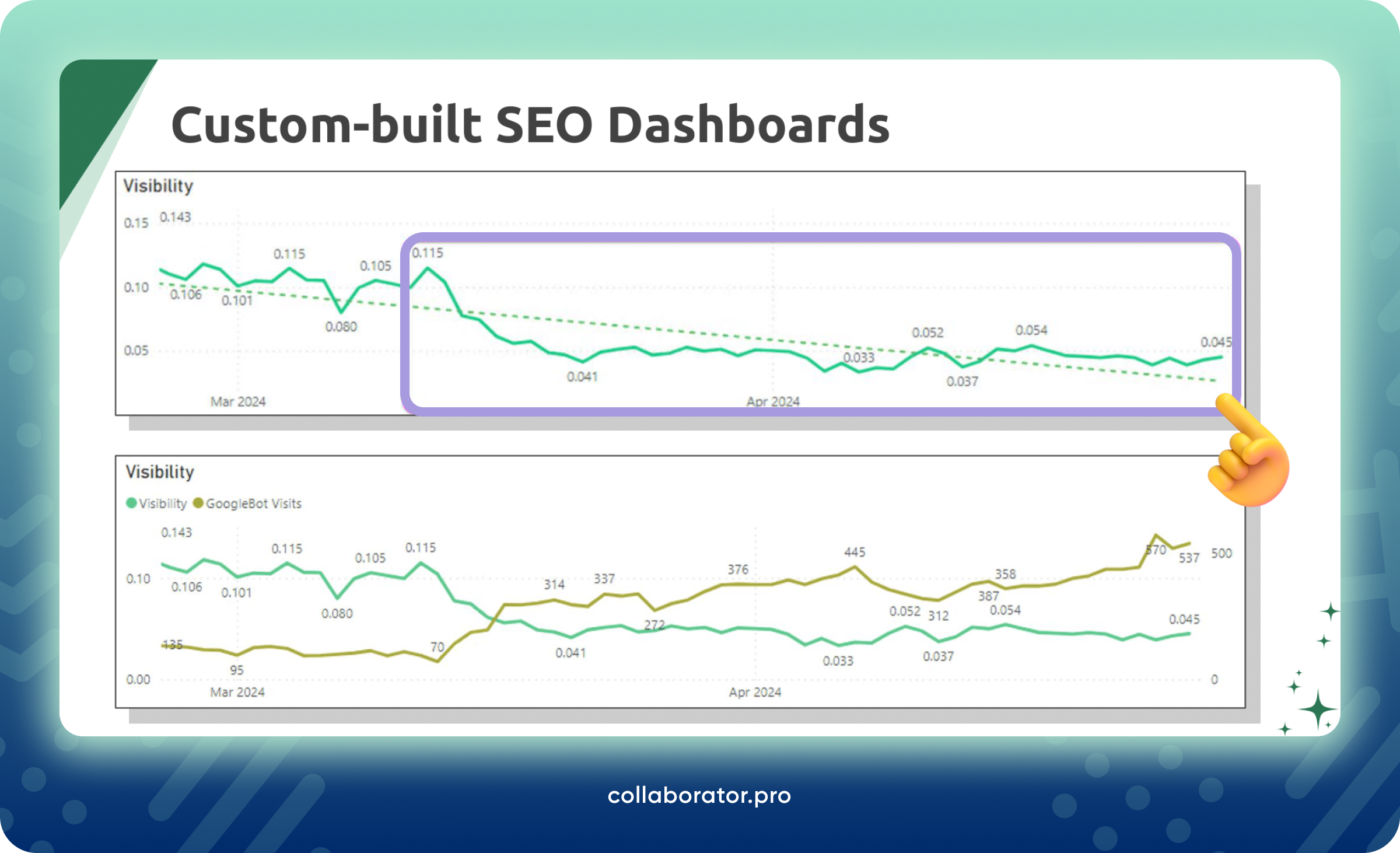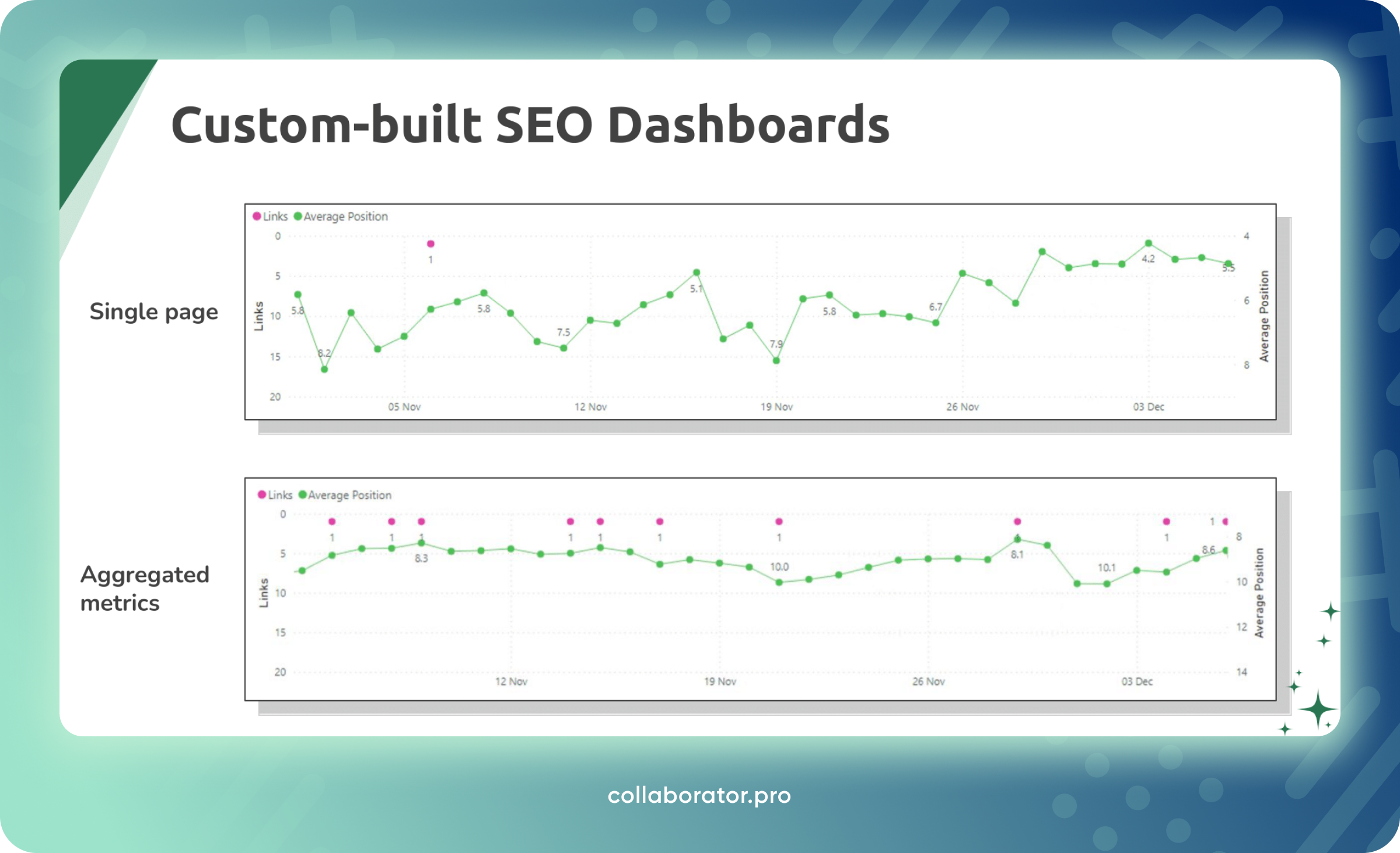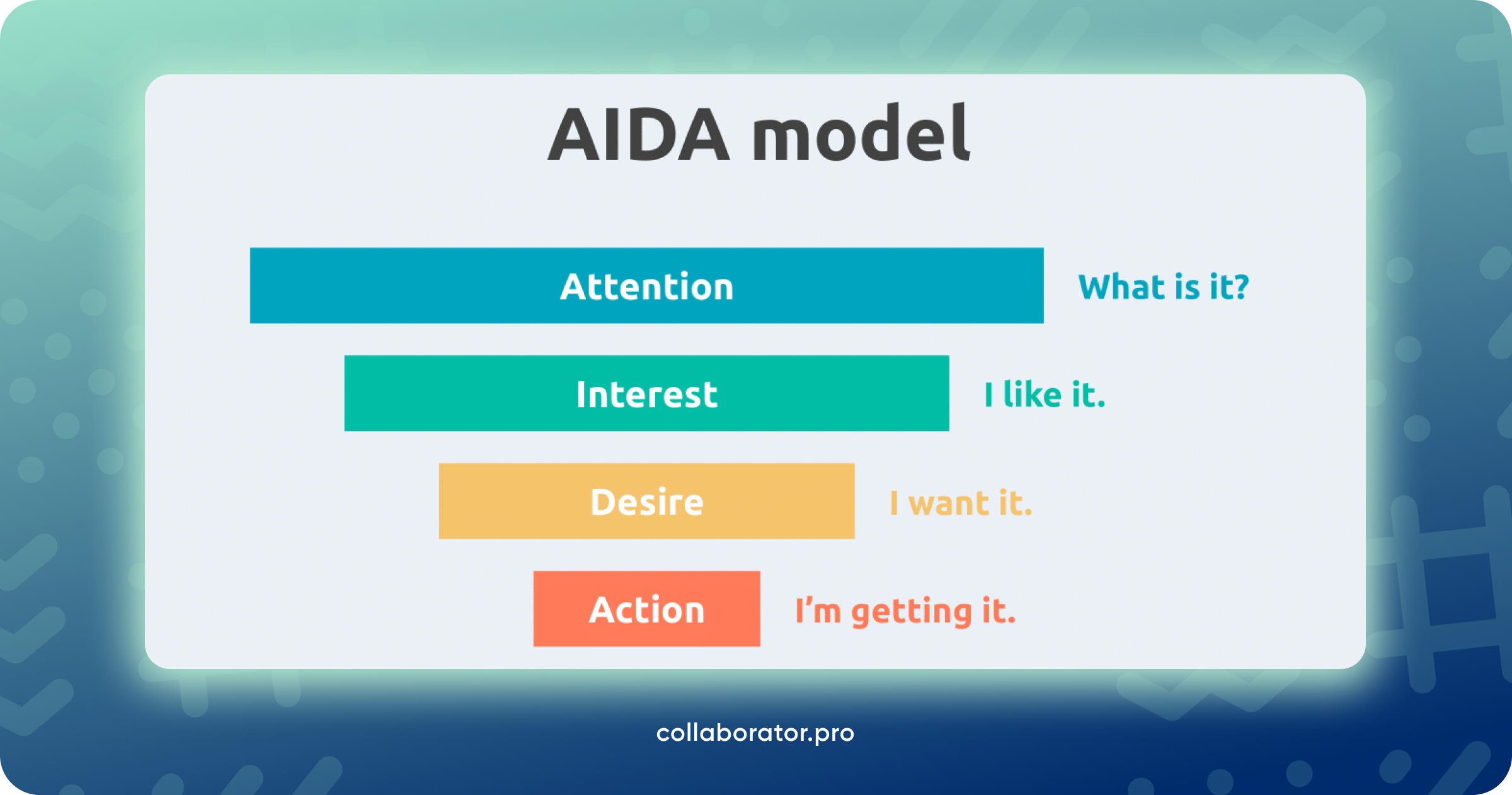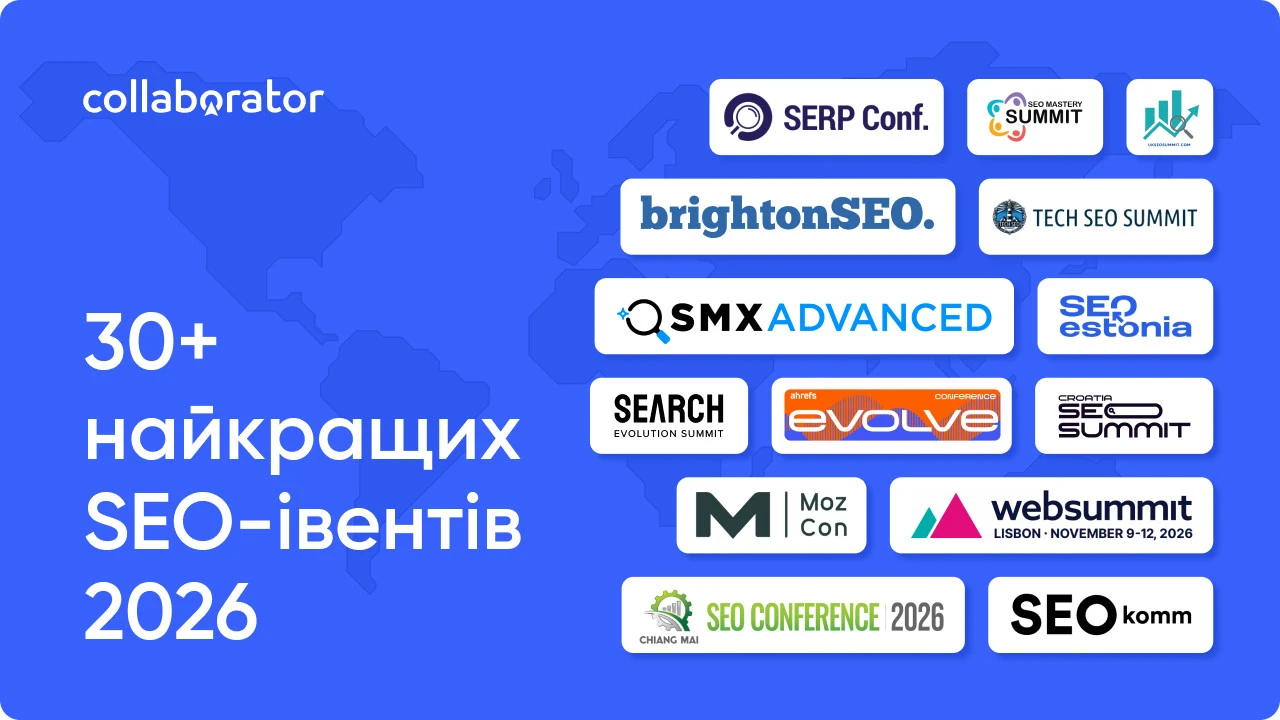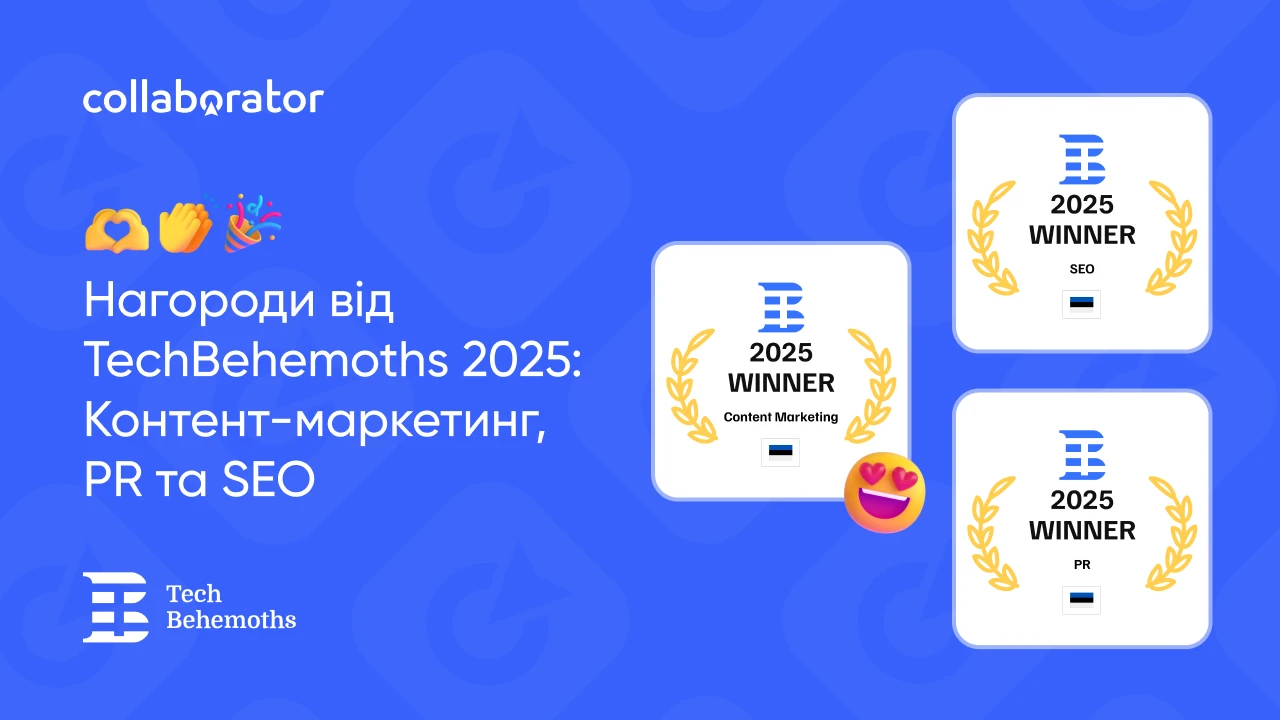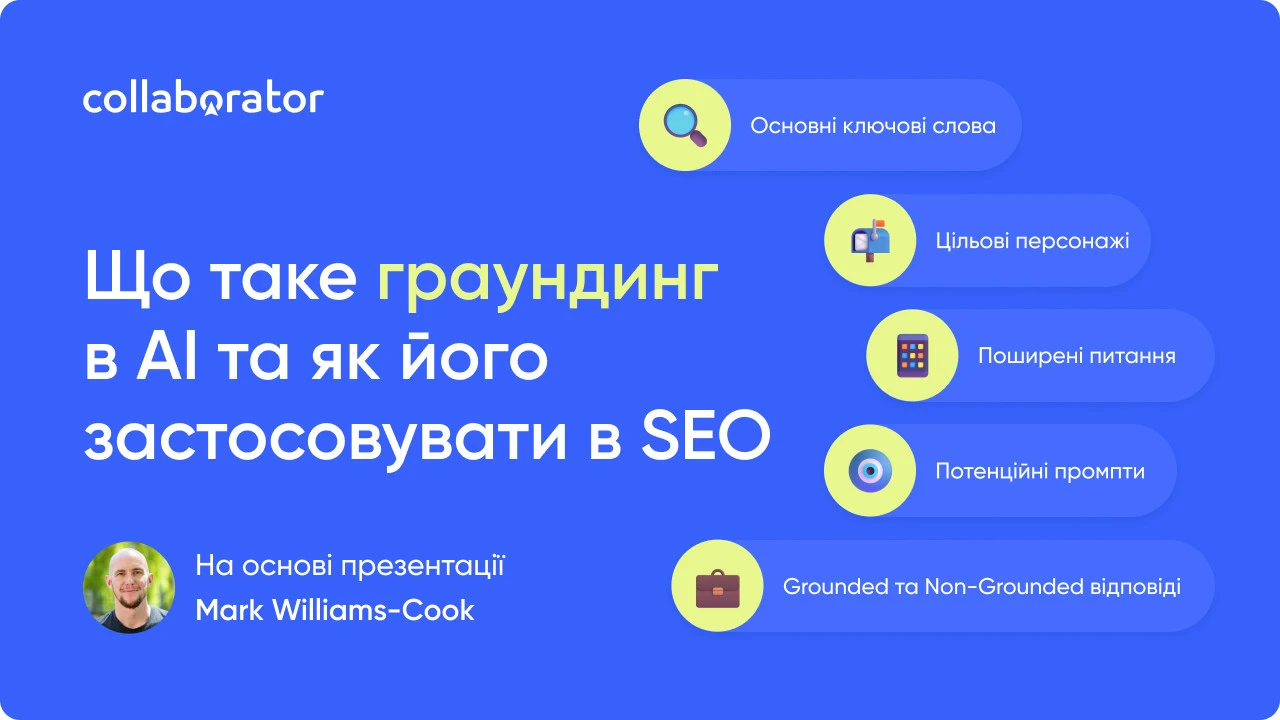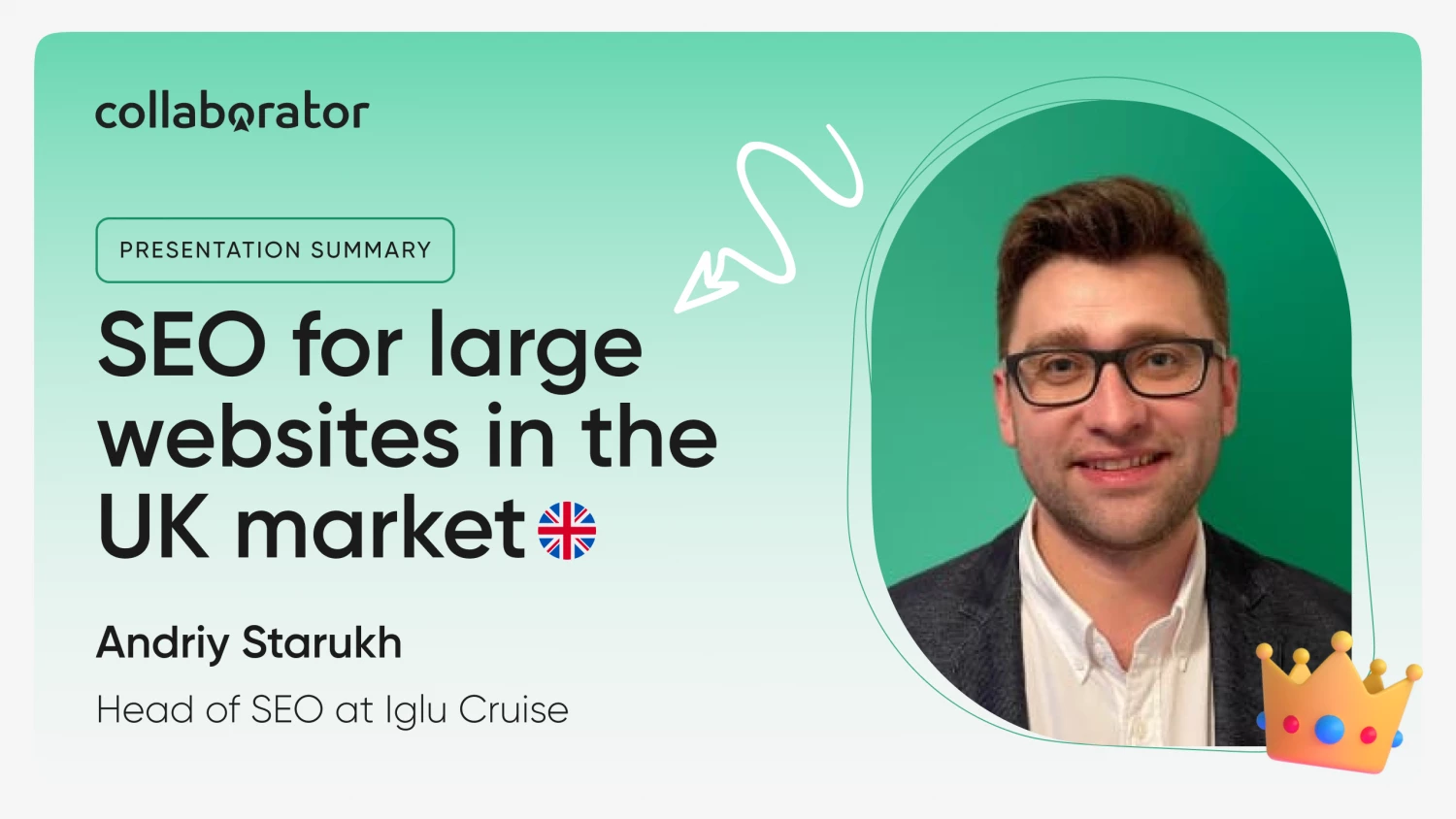
In the world of SEO for large websites, it is essential to have a clear strategy and tools to manage complex structures and vast amounts of content effectively.
At the Collaborator SEO Conference on 10 May 2024, Andriy Starukh, Enterprise SEO Consultant and Head of SEO at Europe’s leading online cruise agency, delivered a presentation entitled "SEO for Large Websites in the UK Market." He shared insights into the unique characteristics of the UK digital landscape and the challenges of managing enterprise-level websites.
We have prepared a detailed summary to help you better understand the topic of promoting large websites in the UK market.
About the Speaker

Here are a few facts about Andriy Starukh:
-
He created his first website in 2007.
-
Since 2018, he has worked at Iglu Cruise, the largest independent cruise agency in the UK.
-
Before that, he founded a small boutique e-commerce SEO agency that promoted online stores and large websites.
-
From 2009 to 2013, he owned a product for developing client websites on Joomla and WordPress and later worked as a Full-Stack Developer.
-
He is a graduate of business schools in France, Poland, and China.
-
He works with enterprise and e-commerce websites in more than ten countries.
His extensive professional experience in the UK market culminated in an impressive and handy presentation at the Collaborator conference, which is definitely worth your attention.
Next — a summary of Andriy Starukh's presentation based on the speaker's words👇
What is an Enterprise Website?
First, what’s the difference between a regular website and an enterprise website? To find the answer, I conducted a small survey on LinkedIn. Different SEO specialists shared their opinions on what kind of site can be considered enterprise-level based on the number of indexed pages.
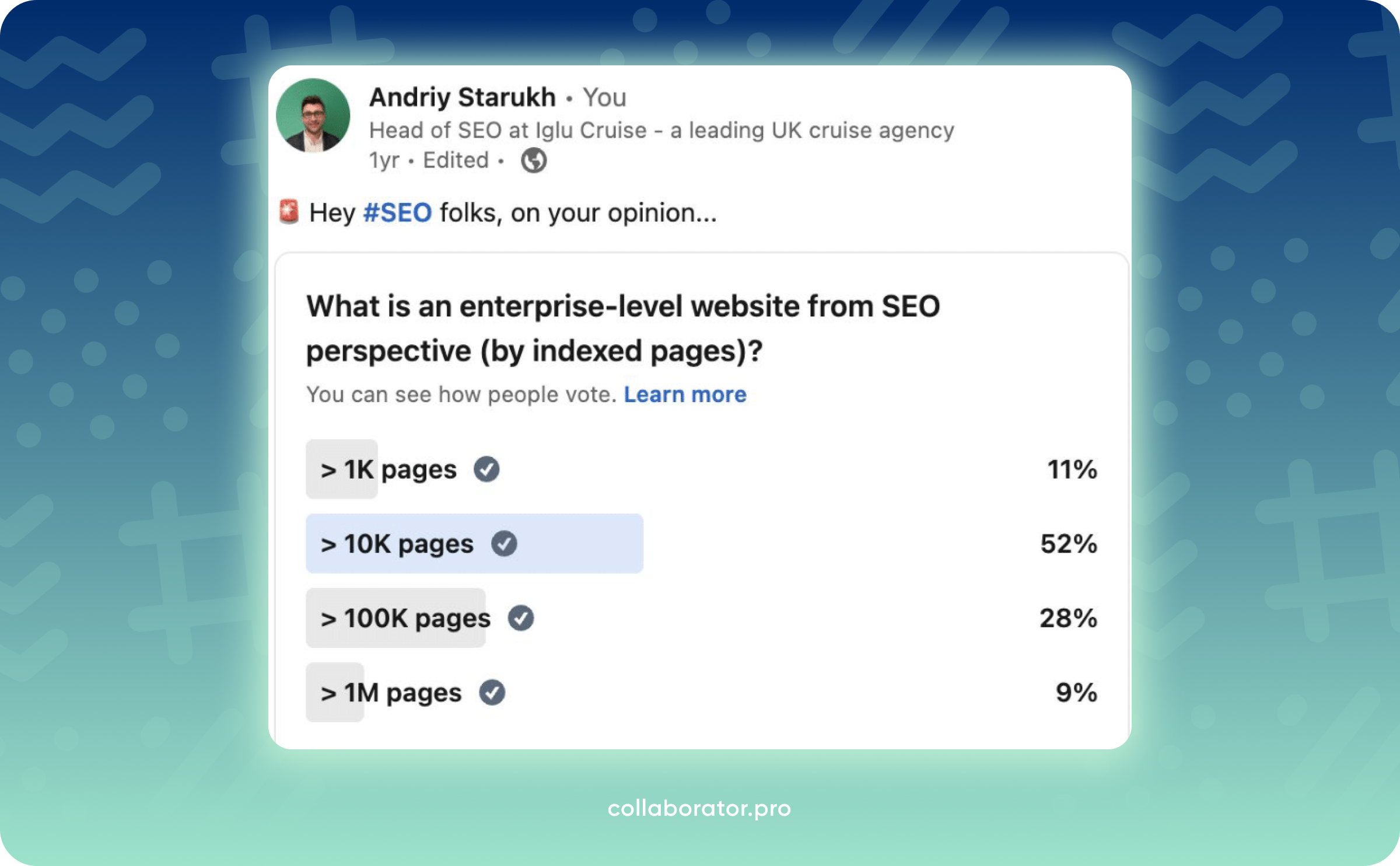 52% of respondents voted that a website with more than 10,000 pages indexed by Google can be considered enterprise-level, and 28% chose the option "over 100,000 pages."
52% of respondents voted that a website with more than 10,000 pages indexed by Google can be considered enterprise-level, and 28% chose the option "over 100,000 pages."
The truth lies somewhere in between. An enterprise website is complex for an SEO specialist or a small team to manage manually without automation.
I believe this is a case with websites that have more than 10k pages. So, today, we will focus on enterprise-level websites in the context of Red Ocean Strategy (from the concept of the book Blue Ocean Strategy), that is, in a well-established market with established players.
Detect, Protect & Grow Model
For successful SEO promotion of large websites in the UK market, I use a model called Detect, Protect & Grow.
Let's look at its components in more detail.
- Detect. The first thing you need to do is research, analyze, and monitor both competitors and your market share.
- Protect. The next stage is to protect current positions. Before focusing on growth, it is essential to ensure the stability of existing results, as losing current positions can cost the business millions. During this process, you must have a holistic vision and focus on organic growth. For example, one team works on the blog, and the other works on the landing pages. In that case, their competition can lead to the cannibalization of key queries, which can backfire on the company and business.
- Grow. In the growth phase, you should focus on avoiding Zero-sum Games and emphasize areas where you can achieve real profits in the medium and long term. I like to compare the Protect stage to a strategic game where each player, using SEO tools and teams, tries to achieve high positions in a landscape defined by Google's algorithms.
However, the primary mission is to protect what you already have and only then move forward. Why are the Detect and Protect stages so important? Because even a slight decrease in visibility can cost a business millions.
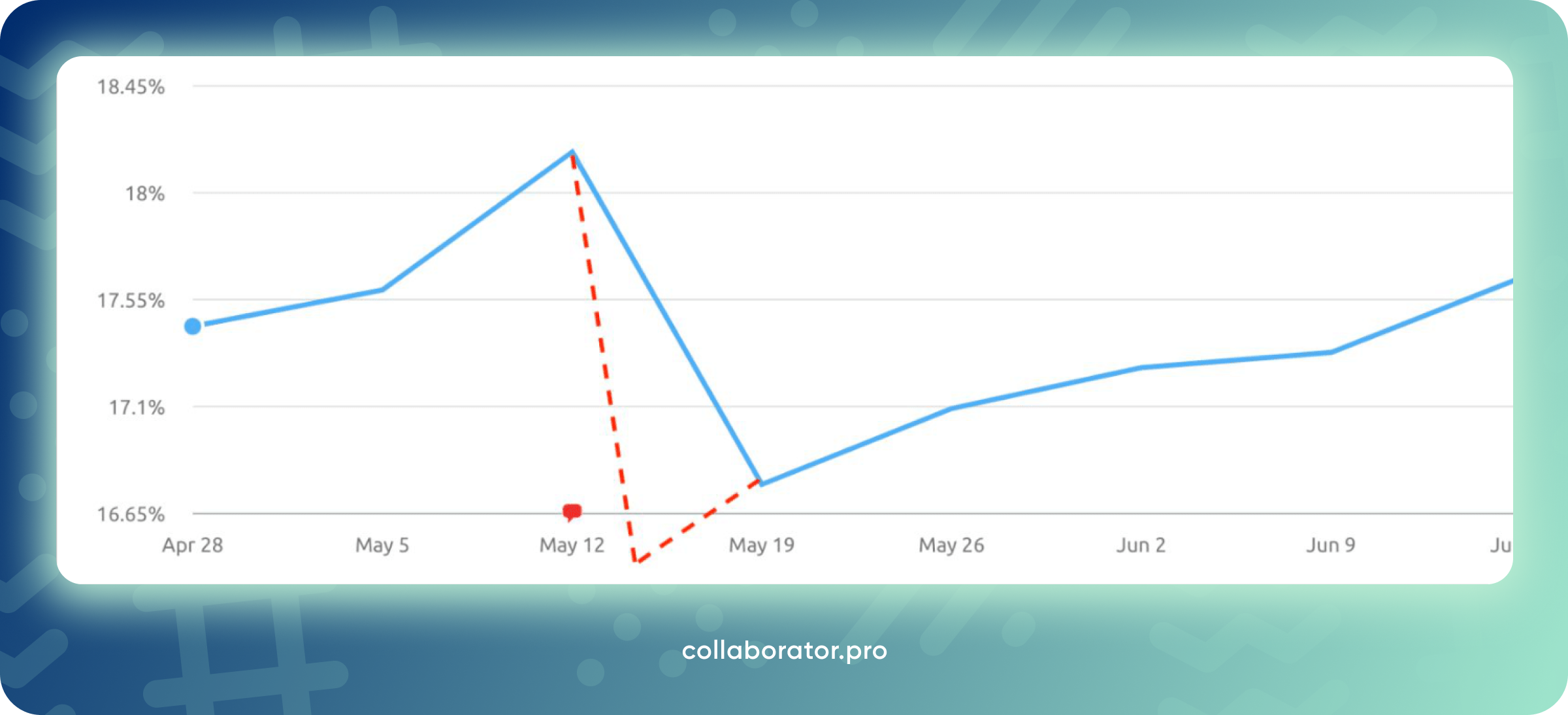 An example of a failed migration of one of the categories, where not all SEO aspects were considered, resulting in an immediate sharp drop. That's why everything needs to be carefully planned in large teams and all nuances discussed.
An example of a failed migration of one of the categories, where not all SEO aspects were considered, resulting in an immediate sharp drop. That's why everything needs to be carefully planned in large teams and all nuances discussed.
The Detect and Protect stages are crucial in strategic SEO for large websites. Even a slight increase in market share among major players — just a few percentage points per year — is considered a significant success.
Enterprise SEO Solutions: Platforms vs. Tools
SeoClarity surveyed how SEO specialists spend their time. According to the responses, 33% of the time is spent extracting data from various systems such as GSC, GA, server logs, ScreamingFrog, crawlers, etc. The rest is devoted to research, analysis, pattern recognition, and creating reports, with only 17% remaining for directly addressing important SEO tasks.
It's essential to have as much data as possible to gain a comprehensive understanding of a large website's situation. SEO platforms provide broader capabilities than tools like Ahrefs or Google Search Console (GSC). An SEO platform significantly streamlines the search and retrieval of necessary data and report generation, allowing spending just 1% of the time on this, freeing up more time for critical tasks.
We have presented SEO platforms worth further consideration in a summarized table format, listing their main features and subscription costs:
| SEO Platform |
Features |
Subscription Cost |
|
SeoClarity |
|
starting at £2,600/,month. |
|
Conductor |
|
N/A |
|
BrightEdge |
|
N/A |
Let’s look at them closer.
1. SeoClarity is an AI-driven platform for medium and large enterprises, providing tools and comprehensive solutions for website SEO analysis and content marketing.
2. Conductor synchronizes data from Search Console, Google Analytics, Jira, Asana, Adobe Analytics, and Drupal and integrates Search Volume data from SemRush, among others. Additionally, Conductor acquired Content King, which operates like GoogleBot by crawling different pages at various times. You can receive alerts about specific category issues within an hour if something breaks down.
3. BrightEdge is a popular tool for enterprise SEO. It operates on a sophisticated mechanism of artificial intelligence and machine learning. It integrates social data, analytics, and search engine results and provides comprehensive reporting.
SEO platforms significantly simplify work by allowing the integration of various systems and displaying data together. However, even they cannot provide a complete picture: at the Enterprise level, some dashboards will still need to be built manually, utilizing resources from your developers, analysts, and BI teams.
As for the pricing of SEO platforms, they are pretty high. For instance, a business subscription to Ahrefs is considerably cheaper than subscriptions to Conductor or SeoClarity, which can be up to five times more expensive annually. However, this is not a significant budgetary concern for Enterprise companies, even mid-size ones with several hundred or up to a thousand employees. Subscribing to such a service would be equivalent to the salary of one specialist, and having a mega-dashboard displaying a lot of data can be as beneficial as a team of five to seven specialists.
Despite the advantages and usefulness of SEO platforms, unfortunately, they do not always provide a complete picture, so sometimes it's necessary to extract the required data independently. This can happen, for example, because you keep logs on one of the services (like Amazon or CloudFront), which some platforms may not support.
For instance, I build Custom-built SEO Dashboards. In the screenshot below, I show how, with its help, on one of my client's websites, we noticed a visibility drop on March 12:
At first glance, it's difficult to understand what's going on. It appears to be related to the Core Web Vitals Input Delay metric rolled out on March 12. The category wasn't optimized for Input Delay, which caused the drop. However, adding GoogleBot Visits to this dashboard reveals that it crawls more frequently and intensely into this specific category. We optimized for Input Delay, especially with heavy JavaScript. Google crawls them, but JavaScript requires more resources, so many pages weren't crawled. Previously, there were 70 hits per day; now, it's 445. From an SEO perspective, these pages were chaotic; Google didn't crawl them, so it didn't see the chaos. They randomly crawled and ranked this category higher. Once all metrics were perfect, content issues like duplication were discovered, causing visibility to drop. This crucial moment won't be visible in other tools.
Another aspect is if you're building links and buy a sponsored post for a category on another website.
It's been about a week or more, and you notice that the average position in the Search Console has increased for that page. With a small site, you can track such pages easily. But imagine you're building for many categories and need to track the overall situation. This requires aggregated metrics, which are challenging with other external tools, so you must make them yourself. This is unavoidable for projects with thousands of landing pages.
Technical SEO, Content, or Backlinks?
I like Mark Williams-Cook's graph, which shows that the importance of technical SEO increases with the size of the site. The larger the site, the more critical technical SEO becomes, and content becomes less important.
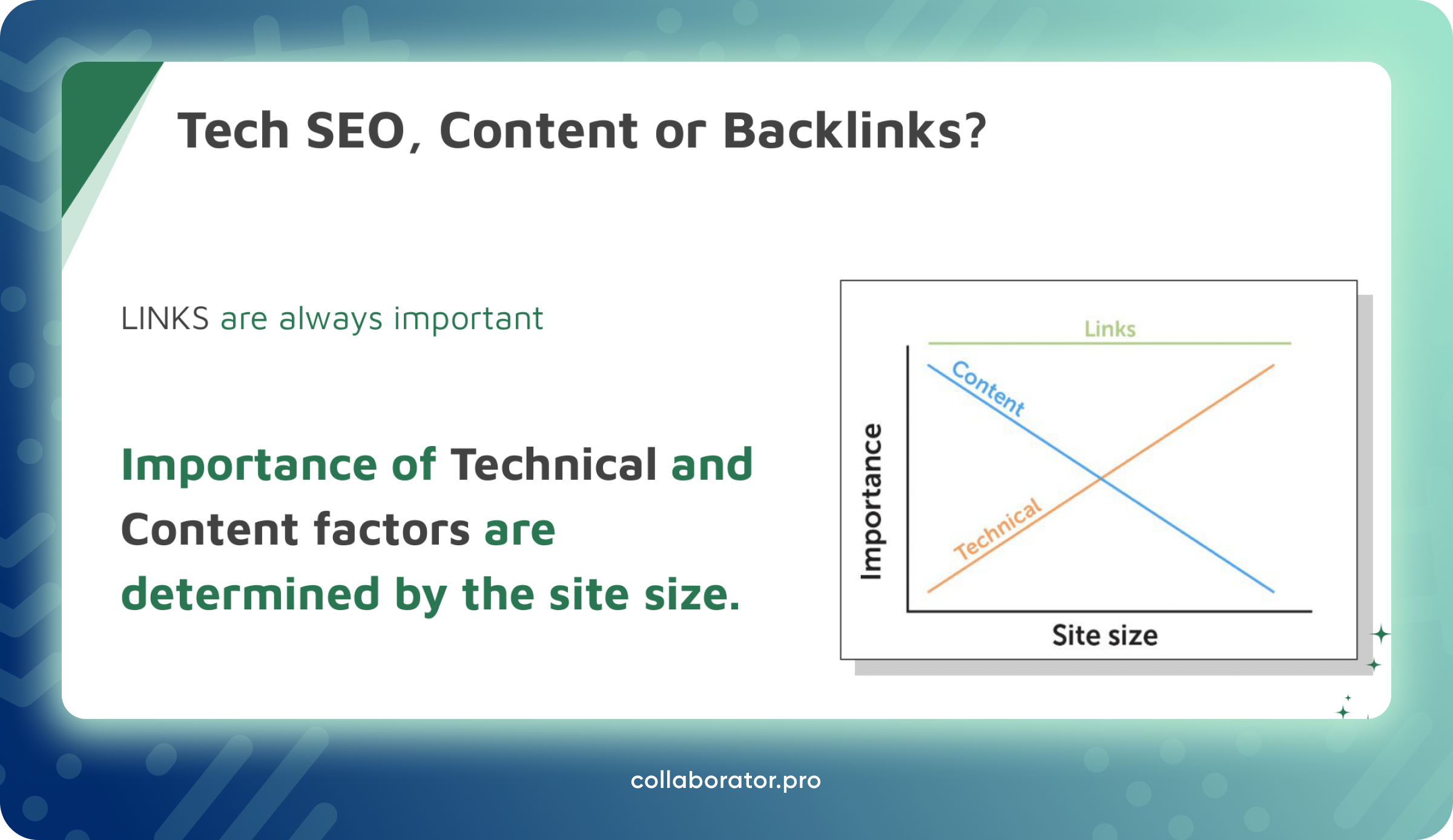 The importance of technical and content factors is determined by the size of the site. Source: — Williams-Cook
The importance of technical and content factors is determined by the size of the site. Source: — Williams-Cook
For example, if you have 10,000 pages and order five articles, will they significantly impact those 10,000 pages if everything is already in order? Probably not. But if you have 10,000 pages and accidentally lose all canonicals, creating numerous duplicates, then a drop is inevitable. That's why technical aspects are crucial for large websites, and maintaining a connection with developers is essential.
Links, PR links, and sponsored content work, but it's essential to understand the industry, niche, and whether you need all of this. You can spend a lot of time on this and end up with results that weren't expected.
Regarding content, the AIDA model is fundamental:
Briefly about the components of the AIDA model:
-
Attention — first, attract attention to your product.
-
Interest — generate interest in the audience.
-
Desire — evoke a desire to purchase the product.
-
Action — prompt action: subscribe to a newsletter/buy the product, etc.
The Specifics of the Work of SEO Professionals in the UK Market: Positions, Payment, Hard Skills vs. Soft Skills
7 Career Stages of an SEO Specialist in the UK
Here are the corresponding titles for SEO specialists at different levels in the UK and Ukraine:
-
SEO Intern / Assistant — Junior
-
SEO Executive / Analyst — Middle
-
Senior SEO Executive — Senior
-
SEO Manager (in-house) / SEO Director (agency) — Team Lead / Team Lead in agency
-
Senior SEO Manager (in-house) / Senior SEO Director (agency) — Senior Team Lead / Senior Team Lead in agency
-
Head of SEO — Head of SEO
-
VP of Search (Vice President) — There is no Ukrainian equivalent. It reports to the Head of SEO and Head of PPC
I recommend studying the interesting document SEO MBA by Tom Critchlow. It extensively outlines the development levels of In-House SEO specialists and those in agencies—from basics to proficiency. It details what a professional should know and be able to do in search engine optimization, covering technical aspects, content, link building, marketing, consulting skills, and leadership qualities.
Apart from standard knowledge of website promotion in the UK market and basic skills, SEO specialists must delve into company processes, understand business nuances, and grasp revenue-generating aspects. This helps them gain a holistic understanding of the situation and know the necessary steps.
Salaries in the UK Market
When comparing salaries between the United States and the United Kingdom, wages in the latter are generally about a third lower. Moreover, higher positions often require a significant portion of the salary to be devoted to taxes.
In-house specialists typically earn slightly higher salaries. Interestingly, there's a trend in the West where Enterprise-level companies more frequently hire In-House teams.
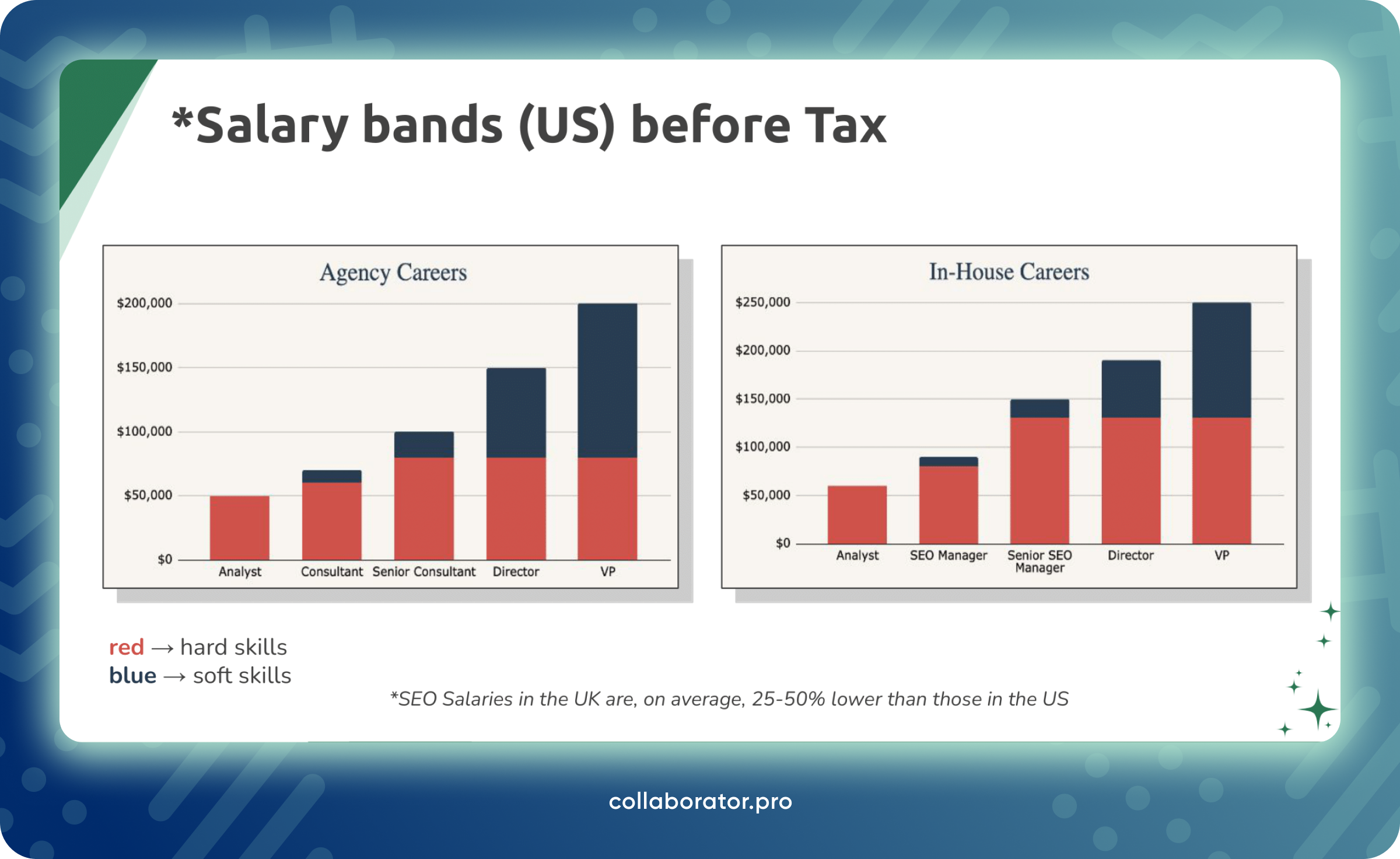 Red color on the diagram represents Hard Skills, which are the technical SEO skills. Blue color represents Soft Skills, such as business acumen, the ability to build relationships with department heads within the company, which directly influences effective communication.
Red color on the diagram represents Hard Skills, which are the technical SEO skills. Blue color represents Soft Skills, such as business acumen, the ability to build relationships with department heads within the company, which directly influences effective communication.
As seen on the graph, SEO Managers and VPs, whether in agencies or in-house, receive equal pay based on Hard Skills, but Soft Skills play a more significant role in these crucial positions.
SEO Events and Communities in the UK
In the United Kingdom, several exciting events are dedicated to SEO promotion. Here are some notable ones:
Conferences:
-
Brighton SEO — one of the largest industry conferences held twice a year in Brighton, UK. It brings together experts worldwide from the digital marketing field to discuss the latest trends, exchange knowledge, and share experiences about new tools and strategies to enhance SEO effectiveness. It includes presentations, workshops, and networking opportunities.
-
Re:commerce by Re:signal— organized annually in London, focusing on SEO strategies in e-commerce.
Meetups:
By engaging in these events you’re opening yourself to an option of networking and possible collaboration.
Noteworthy figures to follow in the UK include:
Daniel Foley Carter is one of the top SEO specialists in the UK. He has been in the SEO industry since 1999, having worked in some of the largest SEO agencies in the UK. As a corporate-level SEO consultant, he collaborates globally with medium and large businesses, providing nonlinear SEO audits, consultations, and comprehensive support.
Mark Williams-Cook has over 20 years of experience in search engine optimization. He is the director of the digital agency Candour, the founder of the SaaS tool AlsoAsked, and the manager of an e-commerce business specializing in pet categories. Mark is a well-known speaker at industry conferences and the author of an SEO course on Udemy.
Fery Kaszoni is an enthusiast of search systems and a software developer with extensive experience creating complex database systems, CRM, system integrations, and sophisticated user interfaces for web and mobile applications.
Q&A
Are there any affiliate programs for cruises, and what are the figures? How can one find out about the terms?
There aren't any, as far as I know. I've seen some figures, but I'm unsure of their realism. I wondered why there weren't any. It's important to consider that cruises may have high turnover but relatively low margins, making building any significant affiliate partnerships quite challenging.
Is it worth buying PBN links for the UK market, or is it better to build your own PBN?
I can't advise on this question because I work with large white-hat projects. However, as far as I know from the Head of SEOs at major brands, no one engages in this here, except perhaps in niches like gambling, etc.
The Collaborator team thanks Andriy for the informative and exciting presentation. We wish him and our readers successful promotion and top positions🙂

